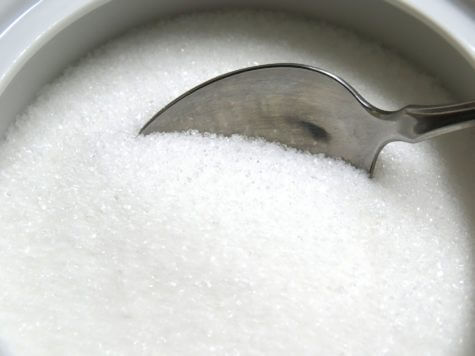

Although there was no direct evidence for a role of ASBs in weight gain, they found that there was no evidence that ASBs aid weight loss or prevent weight gain compared with the full sugar versions.įar from helping to solve the global obesity crisis, ASBs may be contributing to the problem and should not be promoted as part of a healthy diet. In the report, Professor Millett and colleagues outlined current evidence of the health effects of consuming ASBs. Negative consequences for the environment This, together with the consumers’ awareness of the low-calorie content of ASBs, may result in overconsumption of other foods, thus contributing to obesity, type 2 diabetes and other obesity-related health problems. SSBs provide many calories but very few essential nutrients, and their consumption is a major cause of increasing rates of obesity and type 2 diabetes.ĪSBs currently comprise a quarter of the global sweetened beverages market, but they are not taxed or regulated to the same extent as SSBs - perhaps due to their perceived harmlessness, say the researchers.ĭespite having no or very little energy content, there is a concern that ASBs might trigger compensatory food intake by stimulating sweet taste receptors. Sugar-sweetened beverages (SSBs) such as soft drinks, fruit-flavoured drinks, and sports drinks, make up a third of UK teenagers’ sugar intake, and nearly half of all sugar intake in the US. However we found no solid evidence to support this.” May contribute to obesity and type 2 diabetes Professor Christopher Millett, senior investigator from Imperial’s School of Public Health, said “A common perception, which may be influenced by industry marketing, is that because ‘diet’ drinks have no sugar, they must be healthier and aid weight loss when used as a substitute for full sugar versions. However, there is no solid evidence to support the claims that they are any better for health or prevent obesity and obesity related diseases such as type 2 diabetes. ASBs are often known as 'diet' versions of soft drinks, and may be perceived by consumers as the healthier option for those who want to lose weight or reduce their sugar intake. They contain no sugar and are sweetened with artificial sweeteners instead. In the US, 40% of adults and 15% of children consume (paywall) synthetic sweeteners, sometimes unknowingly when they show up in products that advertise themselves as low-calorie.A common perception, which may be influenced by industry marketing, is that because ‘diet’ drinks have no sugar, they must be healthier and aid weight loss when used as a substitute for full sugar versions.Īrtificially-sweetened beverages (ASBs) are alternatives to full-sugared drinks. The size of the artificial sweetener market is growing, and expected to reach $2 billion globally by 2022 according to an industry analysis from March of this year. These concerns are especially warranted as artificial sweeteners become more abundant in the food we eat. Although none of these sweeteners have been deemed dangerous enough to be taken off the market, researchers still don’t know all the ways they could be affecting us. In 2012, for example, there was one (paywall) showing when people ate artificial sweeteners with carb-heavy meals, their bodies produced more insulin than needed, which has been connected to type 2 diabetes. Since then, every year it seems a study or two comes out noting potential issues about the ways our bodies process artificial sweeteners without calories.

In 2005, sucralose, the sweetener found in Splenda, came under fire after it was shown to slightly mutate (paywall) the genes of mice in a lab. Scientists have raised concerns about artificial sweeteners in the past. That said, with these observational studies it was impossible for researchers to find a causal link between fake sugars and any health outcomes, and the researchers noticed that the majority of studies published on the subject were done on people who ate lots of fake sugars not many looked at people consuming the sorts of amounts more typical of an average person. None of the randomized trials showed that artificial sweeteners helped anyone lose weight conversely, participants in some of the observational studies who ate fake sugars actually gained a little bit of weight, and were about 14% more likely overall to develop type 2 diabetes.

In total, the researchers looked at results from roughly 407,000 people participating in seven randomized controlled studies and 30 nonrandomized observational studies.


 0 kommentar(er)
0 kommentar(er)
